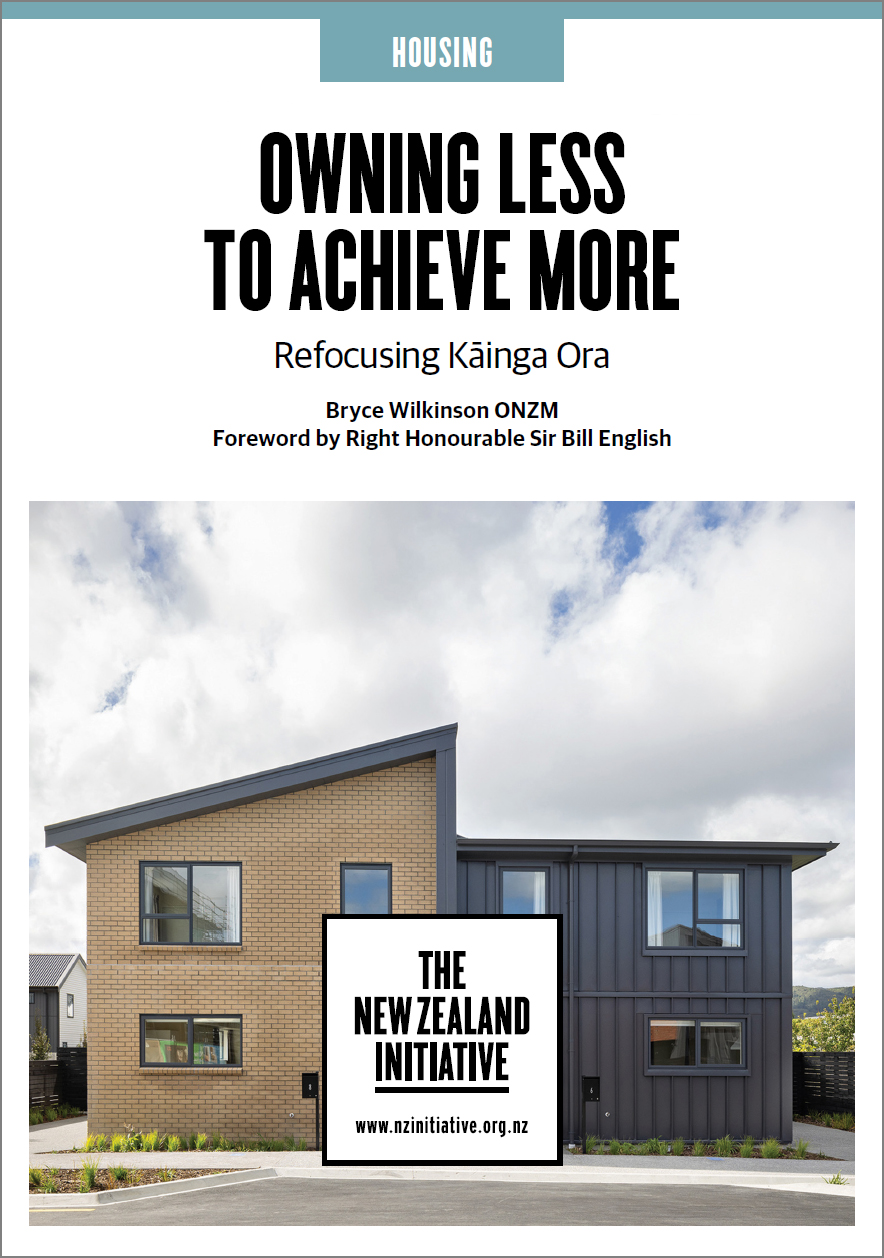Why does the government need to continue owning or managing more than 77,000 housing units, given its poor track record in this area, especially when state assistance can be provided without extensive government ownership?
And why does it not release more land for housing?
Those are the central questions posed in this report, Owning less to achieve more: Refocusing Kāinga Ora.
Authored by Senior Fellow Dr Bryce Wilkinson, it includes an overview of the diverse approaches to social housing assistance internationally. The report shows that a strong connection between state ownership and state assistance is not necessary.
The report lists several reasons why government ownership can be problematic and has been very wasteful. On indicative calculations, its cost structure appears to be approaching twice that of a private landlord benchmark. Nor has it been good at managing rent arrears or dealing with troublesome tenants who are a threat to their neighbours and government property.
The Right Honourable Sir Bill English’s foreword cuts to the chase in pointing out that “Ownership is not critical. What is critical for the people Kāinga Ora and others are helping is an adequate supply of housing and support that demonstrably works”.
While the report welcomes and supports the current government’s initiatives to achieve greater financial stability, the enduring question of how best to help those in housing need remains open for public debate.
Dr Wilkinson said: “The question is not whether government should help vulnerable New Zealanders access housing. The question instead is whether large-scale government ownership is the most effective way to provide that help.”
Options include selling state houses to community housing providers, iwi organisations, private landlords, or current tenants. Recourse to vouchers should be considered to give tenants more choice in housing providers. More of Kāinga Ora’s land inventory could also be usefully sold to private developers to enhance the supply of housing.
“On the evidence, it is plausible that both taxpayers and tenants could be better off if the Government were less dominant as a landlord and if its subsidies empowered tenants by giving them a greater choice of landlord” Dr Wilkinson said.
Dr Bryce Wilkinson discusses his report with our Executive Director Dr Oliver Hartwich on our latest podcast episode. Listen below.
Dr Bryce Wilkinson discussed his report with Rt Hon Sir Bill English and Dr Oliver Hartwich on our webinar launch of the report. Watch below.





